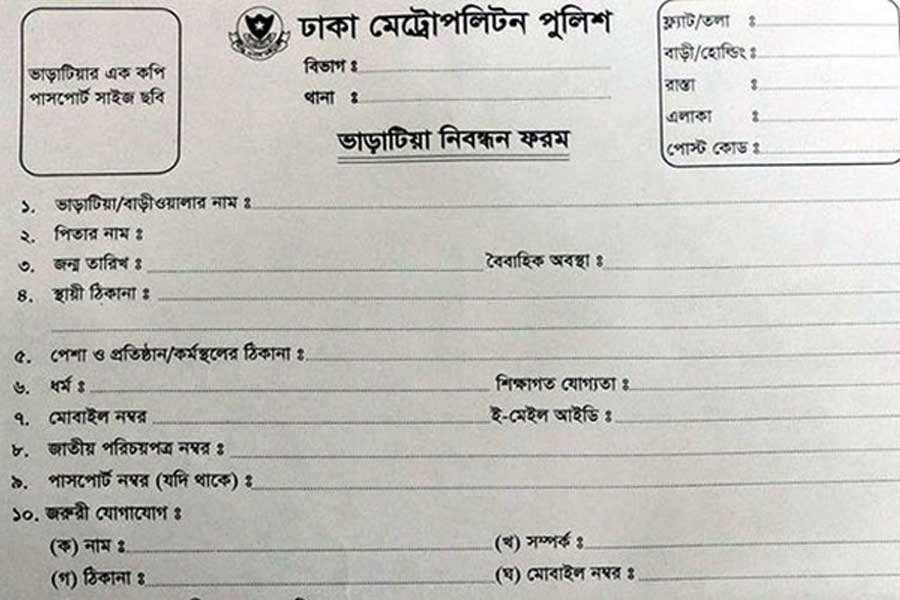
Published :
Updated :

The Dhaka Metropolitan Police (DMP) again starts collecting the information of house owners and tenants living in Dhaka. In different areas, the police have asked the residents to submit their information in a specific form. Earlier in the middle of 2019, the DMP collected residents' information to create a comprehensive database under its Citizen Information Management System (CIMS). The system was introduced in 2016. So far, information of around 8.0 million people has been recorded in the system.
The ongoing campaign to collect citizen's information is an effort to update the database by including those who somehow were earlier excluded. To make the information collection system efficient, the DMP also launched a mobile application in 2019. Nevertheless, information collection is still manual as the app is not properly functional. It is difficult to understand why there is no comprehensive electronic or online system to submit the information. In the absence of a readily accessible electronic or online submission system, citizens are forced to visit police stations to present the form or paper physically.
Though the legal basis of collecting resident information is not clear, it is impossible to deny the necessity of a repository of inhabitants. What is critical is keeping the repository safe so that there is no unauthorised access, breaching the information providers' privacy. From data entry to data preservation, it is the police's responsibility to ensure every citizen's privacy.
Data privacy is still an indifferent issue in this country. To provide different services through online, data and private information of millions of citizens has already been transferred to various authorities, including law enforcement agencies and private firms. Most of the citizens are not aware that every day their privacy is being compromised and they are vulnerable to data theft.
Against this backdrop, collection of citizens' information by the police without adequate protection of data is also risky. There are some valid reasons to continue the existing system to collect the information manually using a paper form. Many citizens in the country are yet to be fully equipped with any comprehensive electronic submission system. For any such online form filling-up and submission, they go to different service or business centres. So, when they provide their information with other people's help, there is a significant risk of a privacy breach and data leak.
The process of collecting citizens' information has to be transparent and secured. The acts of the law enforcement agencies must not be intimidating and inefficient. For instance, some police have also sought information from various offices. If required for security reason, the police may collect information pertaining to caretakers and security guards. Seeking information from all the office staff is not acceptable as staff members supposed to have provided their information from their living quarters to the police stations concerned.
Citizen information is a sensitive data set and needs to be handled with care. It is the law enforcement agency's responsibility not to misuse the information in the name of finding or detecting criminals.


 For all latest news, follow The Financial Express Google News channel.
For all latest news, follow The Financial Express Google News channel.